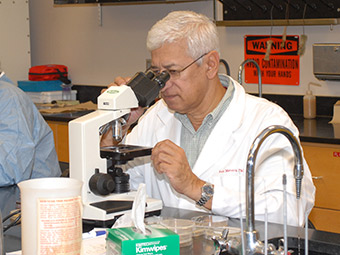The Global Decline of Nonmarine Mollusks
Document Type
Article
Publication Date
4-1-2004
Abstract
Invertebrate species represent more than 99% of animal diversity; however, they receive much less publicity and attract disproportionately minor research effort relative to vertebrates. Nonmarine mollusks (i.e., terrestrial and freshwater) are one of the most diverse and imperiled groups of animals, although not many people other than a few specialists who study the group seem to be aware of their plight. Nonmarine mollusks include a number of phylogenetically disparate lineages and species-rich assemblages that represent two molluscan classes, Bivalvia (clams and mussels) and Gastropoda (snails, slugs, and limpets). In this article we provide an overview of global nonmarine molluscan biodiversity and conservation status, including several case studies documenting the diversity and global decline of nonmarine mollusks. We conclude with a discussion of the roles that mollusks and malacologists should play in conservation, including research, conservation management strategies, and education and outreach.
Recommended Citation
Charles Lydeard, Robert H. Cowie, Winston F. Ponder, Arthur E. Bogan, Philippe Bouchet, Stephanie A. Clark, Kevin S. Cummings, Terrence J. Frest, Olivier Gargominy, Dai G. Herbert, Robert Hershler, Kathryn E. Perez, Barry Roth, Mary Seddon, Ellen E. Strong, Fred G. Thompson, The Global Decline of Nonmarine Mollusks, BioScience, Volume 54, Issue 4, April 2004, Pages 321–330, https://doi.org/10.1641/0006-3568(2004)054[0321:TGDONM]2.0.CO;2
Publication Title
BioScience
DOI
10.1641/0006-3568(2004)054[0321:TGDONM]2.0.CO;2



Comments
© 2004 American Institute of Biological Sciences.